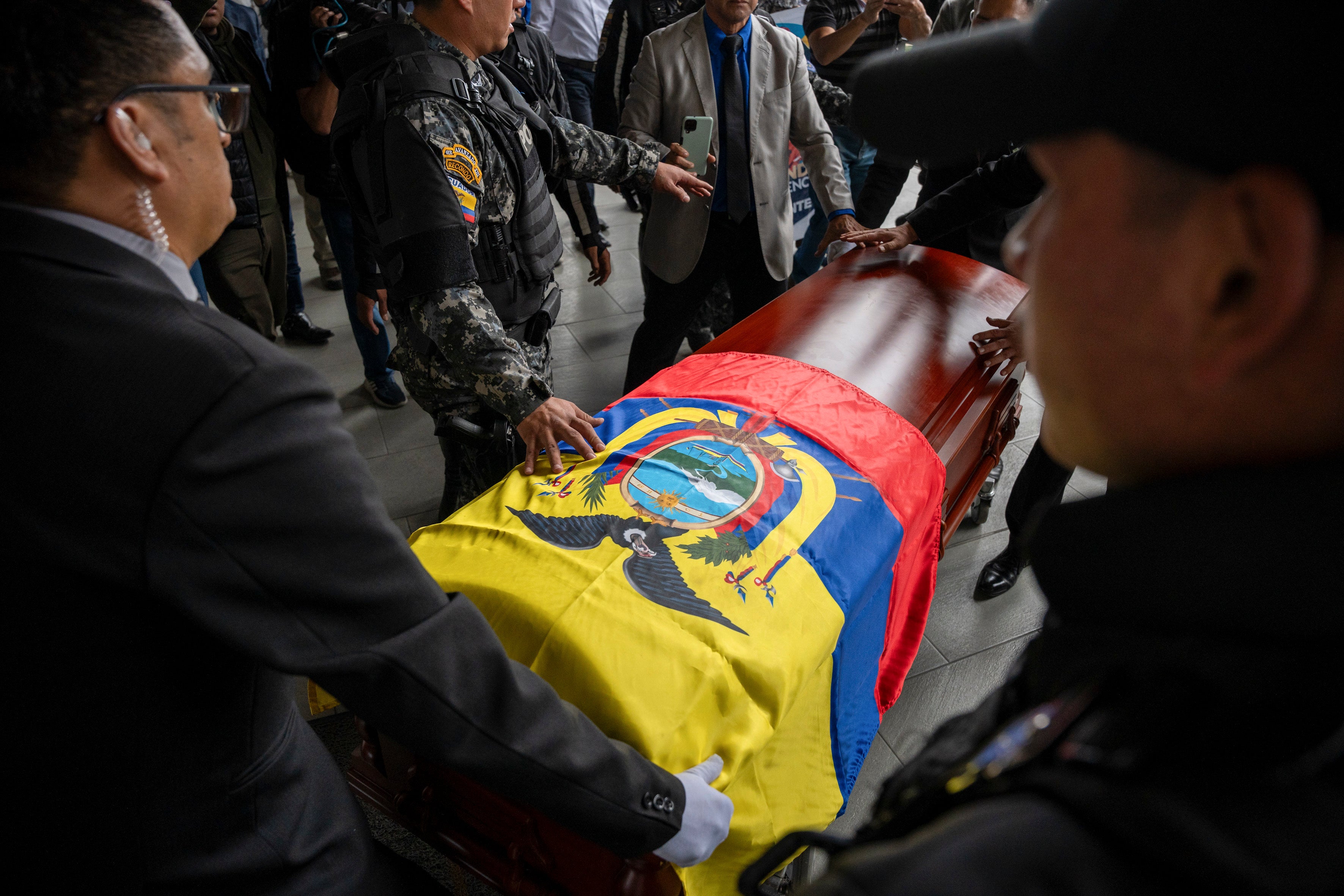Trial begins in Ecuador over murder of presidential candidate Villavicencio
Ecuador’s highest court has put five suspects on trial for last year’s murder of presidential candidate Fernando Villavicencio

Your support helps us to tell the story
From reproductive rights to climate change to Big Tech, The Independent is on the ground when the story is developing. Whether it's investigating the financials of Elon Musk's pro-Trump PAC or producing our latest documentary, 'The A Word', which shines a light on the American women fighting for reproductive rights, we know how important it is to parse out the facts from the messaging.
At such a critical moment in US history, we need reporters on the ground. Your donation allows us to keep sending journalists to speak to both sides of the story.
The Independent is trusted by Americans across the entire political spectrum. And unlike many other quality news outlets, we choose not to lock Americans out of our reporting and analysis with paywalls. We believe quality journalism should be available to everyone, paid for by those who can afford it.
Your support makes all the difference.Ecuador’s highest court put five suspects on trial Tuesday for last year’s murder of presidential candidate Fernando Villavicencio, as his relatives protested outside to demand a swift and hefty sentence.
Prosecutors at the National Court of Justice accuse Carlos Angulo, a leader of drug trafficking gang Los Lobos, of coordinating the crime. Laura Castillo, an alleged associate of Los Lobos, is accused of obtaining vehicles, weapons and money for the hit men who killed the candidate.
They could face prison sentences of 22 to 26 years.
Villavicencio, 59, was killed by gunmen on motorcycles on Aug. 9 as he left a school in Ecuador’s capital, Quito, where he held a campaign rally.
The former journalist had produced groundbreaking investigations on government corruption in Ecuador and had promised to confront gangs and their links to politicians if he won last year’s election.
Villavicencio was one of eight candidates and had been polling in the middle of the pack when he was murdered.
His killing marked a low point in Ecuador’s fight against crime, and highlighted the growing influence of gangs that use the nation’s ports on the Pacific Ocean to ship cocaine to Mexico and Europe.
Prosecutors have said they were still searching for others who planned the killing.